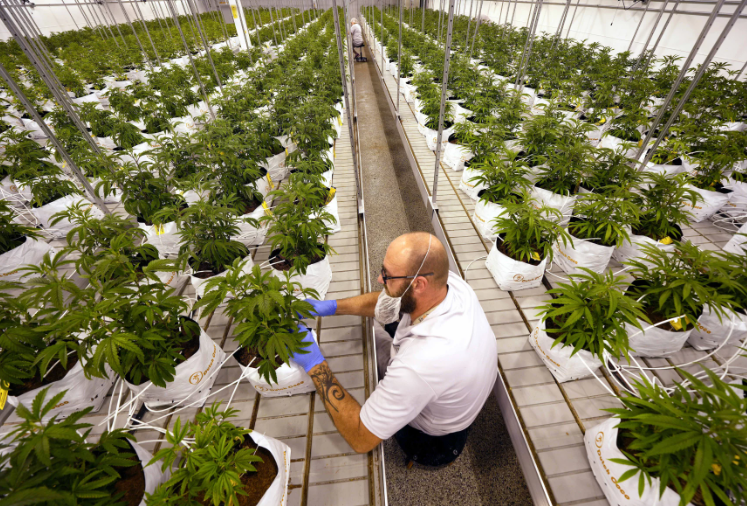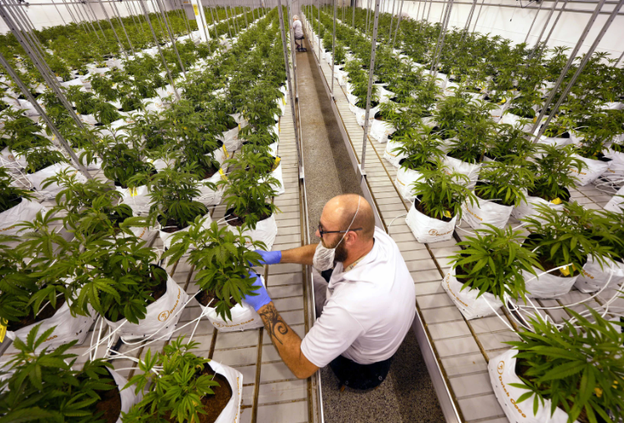It is amazing what a bad drug trip can do.
Many California lawmakers — specifically those who are true blue — are advocating lowering taxes decreasing regulation, and allowing free trade.
These are the three primary symptoms of someone embracing supply-side economics.
Those who have always dismissed warnings one can tax something to death are pushing to suspend or lower state taxes on legal marijuana and ease up somewhat on regulations governing legit cannabis.
It just goes to show cannabis might just mess with one’s DNA as some studies suggest.
The promise of legal marijuana pumping obscene amounts of money into the tax dollar rabbit hole that is Sacramento hasn’t materialized.
Seven years after California voters serenaded by tales of wealth and reduced crime agreed to legalize the possession, cultivation and distribution of marijuana via legal storefront operations aren’t the potent THC — that’s Tax High for California and not Tetrahydrocannabinol — promised.
In the fourth quarter of 2022, the California Department of Tax and Fee Administration reported $221.6 million in marijuana-related taxes were collected by the state. The breakdown is $108 million via the excise tax on cannabis $113.6 million from the sales tax collected on retail pot sales.
For the excise tax on cannabis and not general sales tax, that reflects an annual tax flow of $432 million. It’s a long way from upwards of $2 billion year proponents of Proposition 64 said legalizing cannabis sales would provide via excise taxes alone.
Those figures do not reflect local “taxes.” In the case of the City of Manteca it will be a revenue offering in the form of revenue via a “community benefit agreement.”
Still, $884 million a year once the state sales tax is added on to marijuana sales is nothing to sneeze at.
It is, though, if you forget what is California’s biggest, and arguably most destructive, addiction — big government.
Lawmakers in Sacramento live to come up with new and creative ways to spend state taxes even to the point they are used to fund “health services” for those in other states to travel to California to secure abortions.
It is why you hear the very same lawmakers that argue it wasn’t their problem if regulations, minimum wage hikes and such they impose on retailers and others put them out of businesses are now singing the praises of cutting taxes and regulations on legal storefront cannabis operations.
Perhaps it is because the impact of taxes and regulations on cannabis sales is there for everyone to see the raw in terms of cause and effect.
Then there is the little detail reported by New Frontier Data, a cannabis analytics firm.
Unlicensed cannabis sales last year in California reached $8.1 billion.
That compares with $5.4 billion for legal sales of marijuana.
The blue argument now is simple. Cut taxes. Ease regulations. And bingo! More legal wealth is created and even more taxes flow into government coffers to underwrite the safety net and general services.
Who knew Ronald Reagan one day would essentially be the patron saint of California’s Democratic lawmakers trying to pump up lagging legal marijuana sales based on their dogged pursuit of supply-side economic policies.
The reefer madness going on in Sacramento conveniently skirts two inconvenient truths.
*Legal marijuana sales are generating almost $1 billion a year in taxes the state wouldn’t otherwise have.
*Retail marijuana storefronts are catering primarily to Baby Boomers. Generation X’ers and the and the older segment of the millennials.
The demographic trend is reflected in how the more successful retail cannabis operations are operated in showrooms that look like they are right out of the playbook of trendy interior designers.
Illegal marijuana sellers are not, as a whole, catering to the same demographics.
Lower prices matter to a point.
If they were all that mattered, Target would have been shuttered long ago while dollar stores would be on every corner.
The fact legal sales still top $5.4 billion a year even with having prices as much as 50 percent to a 100 percent higher than what you could get dropping by a drug house in a shady part of town or buying from an acquaintance should tell you a lot.
Legal marijuana is perceived – and rightfully so — as safer when it comes to being free of pesticides and such thanks to rigid state monitoring.
It’s sold in much more secure and pleasant surroundings.
if you have green goals helping determine how you spend your money, there is no worries that the people growing cannabis you consume do so in a manner that brings wanton environmental destruction to forests and water sources.
And if you believe in social justice, you can rest assured illegal immigrants aren’t being forced to live in deplorable conditions under the watch of armed criminals being paid next to nothing to grow and process marijuana.
It is obvious legal marijuana sales aren’t California’s version of the goose that lays the golden egg.
That said, legal marijuana sales aren’t exactly laying the proverbial egg when it comes to government tax revenue.
And while there is a legitimate concern that the growing surplus of marijuana production could overwhelm the legal pot industry, the way to ensure it doesn’t lose market share is not to slash taxes.
It’s to do what Sam Walton and Jeff Bezos both did — grow the volume and drive prices down.
Then more sales, the more the unit prices can be cut while covering overhead and providing profit even with taxes tacked on.
The correct government intervention if they want to manipulate the market to keep legal sales from losing traction is to reduce the number of permitted sellers.
In Manteca’s case, city leaders might want to resist the urge to eventually issue all three of the permits the municipal ordinance initially is allowing for storefront cannabis sales down to two.
In doing so, it also will reduce the number of licenses the Manteca Police have to monitor by a third.
This column is the opinion of editor, Dennis Wyatt, and does not necessarily represent the opinions of The Bulletin or 209 Multimedia. He can be reached at dwyatt@mantecabulletin.com






